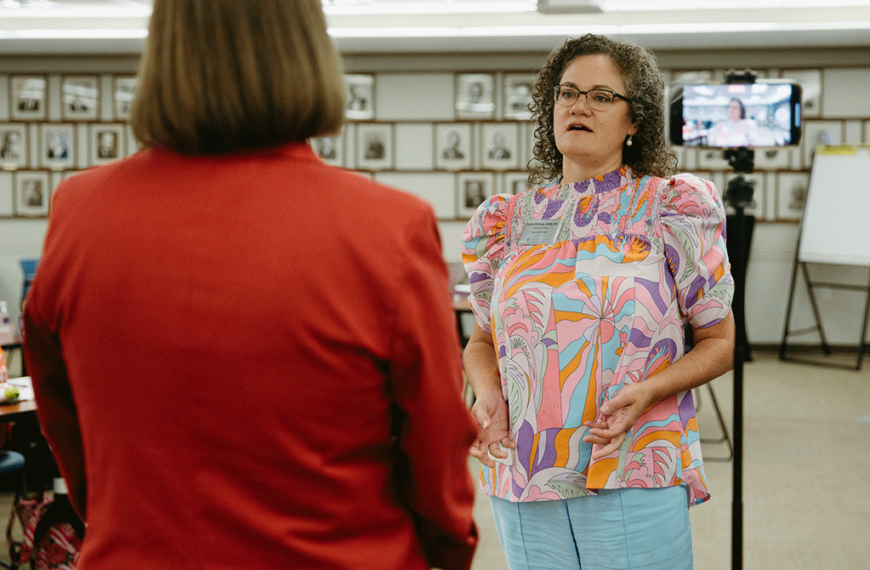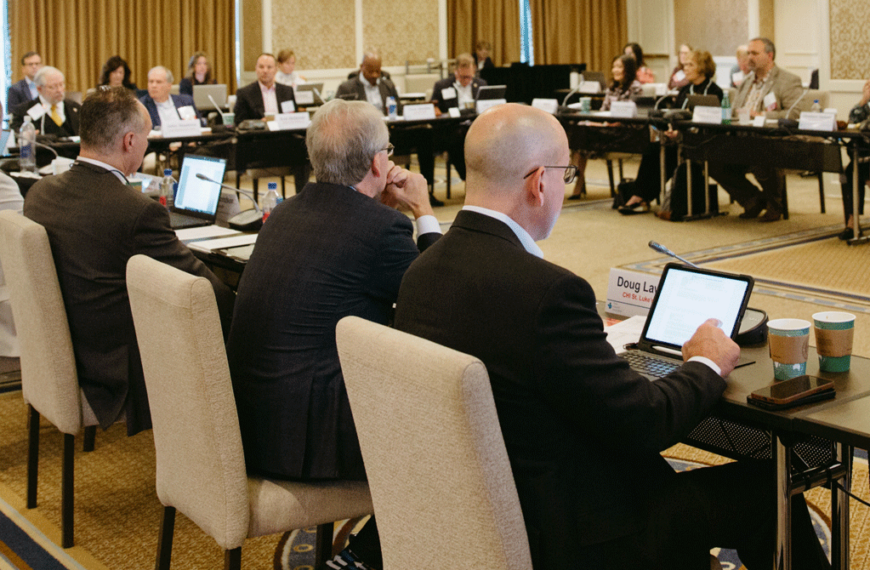Pamela Stoyanoff, MBA, CPA and FACHE is currently president and COO for the 12 hospital Methodist Health System in Dallas. In that role, she leads strategic planning for the system and provides operational leadership for its hospitals, joint ventures and medical group.
Stoyanoff has been a member of numerous Boards and currently serves on the Dallas Ft. Worth Hospital Council Education and Foundation Board, Business Council for the Arts Board, the Dallas Symphony Orchestra Finance Committee and the Texas Hospital Association Board. She has also been voted one of the top “100 Women Hospital and Health System Leaders to Know” by Becker’s Hospital Review , one of the top 25 Women in Business in Dallas/Ft. Worth by the Dallas Business Journal and was also selected by the Dallas Business Journal as a Health Care Hero (in recognition of contributions toward improving health care in North Texas).
THA recently sat down with Stoyanoff to discuss her career and emergency preparedness in Texas hospitals. Here’s what she had to say:
What inspired you to pursue a career in health care, and more specifically in hospital administration?
Actually, I had not planned on a career in health care. I came out of college with my degree in accounting and began working at a national CPA firm. I audited a number of health care institutions and fell in love with the mission of health care. So when I left the firm, I joined a system in Chicago and have been in not-for-profit health care ever since. My career, until moving to Texas, was as a CFO. When I came to Methodist Health System, I moved over to the operations side and up to my current role of President/COO of the system.
What emergency preparedness processes or procedures are in place in your hospital?
We have several. The Emergency Management department, which manages our preparedness from weather, mass casualty events and fire drills, has been in place for years and functions quite well. We have a Safety and Security System Steering Committee, which looks at patient and employee safety/security, training/education in responding to threats. We also employ our own police force (complete with a Chief of Police), which manages security in all of our facilities. We have spent millions of dollars on additional security measures including weapons detection systems, panic alarms, bullet-resistant glass, cameras, etc.
How should hospitals approach preparing for internal threats (facility, employees, equipment, etc.) vs. preparing for external threats (patients/public, weather/disaster, etc.)?
You can’t possibly prevent every type of threat event from occurring, but you can implement general safety measures to protect from outside threats or weather events. You can also educate your staff on what to do when events occur and have a culture of “see something, say something.” I would also say that hospitals need to dedicate additional resources to physical safety in the workplace to include some of what I mentioned earlier. None of us can “guarantee” anyone’s safety, but there are things we can do to help mitigate the risk of an adverse event.
Can you describe a time when you handled an emergency or crisis on the job? What impact did that have on you, your role and/or your perspective?
Definitely. On October 22, 2022, we had a shooting on our main campus and two of our employees were killed. Upon hearing of the shooting (which occurred on a Saturday), I immediately headed to the campus and helped organize our emergency response. It was a very fluid event and filled with heavy emotion. Police (ours and the city’s) were everywhere, employees were aghast, and the media presence outside was crazy. We focused on transparent communication and deeply caring for each other in the midst of the tragedy.
I learned a lot from that experience, including how resilient people can be and how everyone can pull together to do what needs to be done. But I also learned it takes a very long time for those most impacted (our caregivers on the floor at the time as an example) to heal. It all takes patience and continuous support to recover from such a tragic event. We have recovered, but we will never forget.
What advice do you have for your colleagues in hospital administration and operations when it comes to emergency preparedness?
Don’t take it for granted. Have specific, written plans. Assess your infrastructure and add resources where necessary. Train your staff so they know what to do, and then reinforce that training. Consider an outside assessment of your preparedness. Inform your Board of Directors as to your actions.
What impact do you hope your work has within your community?
I want the communities we serve to trust us. To know that if they need care, we’ve got them. To do that, we have to be willing to listen, be transparent in our answers to questions, constantly evolve, and never stop caring.
Related articles from The Scope
Two Texas Hospitals Prepare the Next Generation of Health Care Workers
In a groundbreaking move to enhance health care education, Baylor…
Congratulations to THA’s July Newsmakers
Sponsored by In-Flow Executives, THA’s Newsmakers highlights leaders from THA…
Texas Hospitals: Invaluable – and Imperiled
In the broadest sense of the word, Texas hospitals equal…
Congratulations to THA’s June Newsmakers
THA’s Newsmakers are leaders from THA-member hospitals and health systems…
Mastering Media Relations: Essential Tips for Hospital Leaders
When a member of the media calls your hospital, it…
Accepting Nominations for THA’s Boards, Councils and Committees
Now through July 3, members can nominate Texas hospital leaders…








